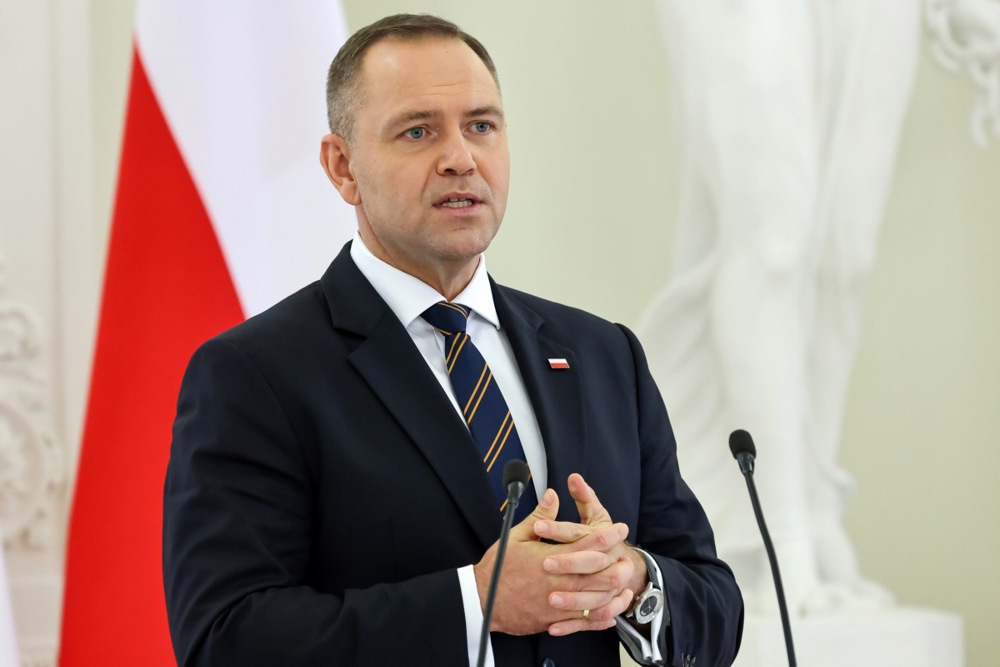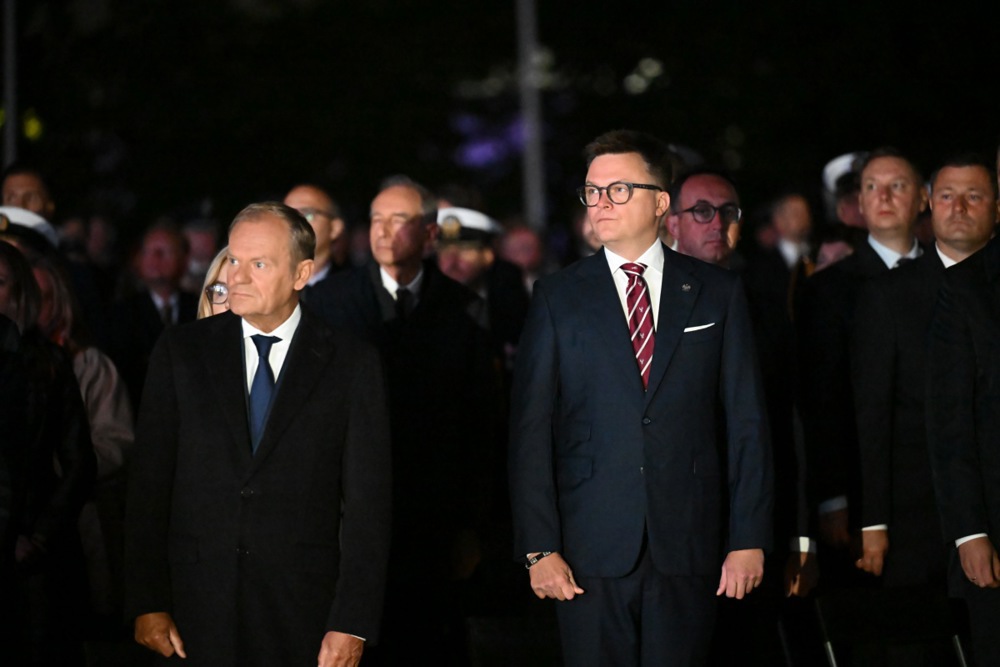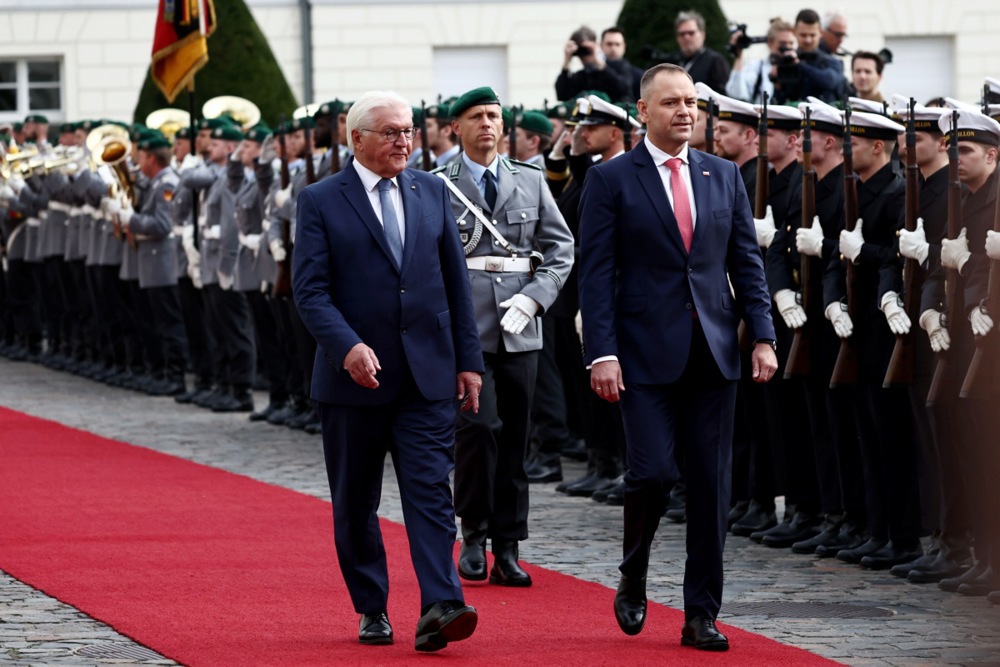Poland’s President Karol Nawrocki has signalled he will not sign into law the ruling centre-left coalition’s bill that would allow unmarried partners, including same-sex couples, to sign agreements granting them legal rights.
He said that was because he views it as an attempt to create an “alternative to marriage”.
The proposed law would allow a couple to sign an agreement before a notary that would grant them exemptions from tax on inheritance and gifts between one another. In addition, it would provide them the possibility to jointly file tax returns and the right to mutually access medical information.
It would also enable them to have joint property ownership and to obtain leave from work to care for a partner.
The proposals exclude issues related to children, such as custody or adoption.
The bill, announced on October 17, was presented as a compromise that stopped short of the introduction of civil partnerships for same-sex couples.
Prime Minister Donald Tusk told reporters the bill “won’t delight anyone, neither opponents nor proponents of more progressive solutions, but it offers a glimmer of hope”.
“The fact that we managed to reconcile these extremes in the coalition in which I am Prime Minister and find some ground for compromise is definitely a step forward,” he added.
Leader of the centre-right Polish People’s Party (PSL) Władysław Kosiniak-Kamysz. said: “We’ve found a compromise.
“This bill is an example of agreement beyond divisions and proof that co-operation is possible. It is a bill that helps Poles, it gives them security, access to information, the ability to inherit and certainty in difficult times,” he said.
Robert Biedroń MEP, of the Left party, said the proposed law is “not ideal but very much needed” and noted that he had long been waiting for the State to recognise his relationship with Krzysztof Śmiszek, also an MEP from the Left party.
“Twenty-three years. That is how long my relationship has been waiting for the state to notice us,” wrote Biedroń on social media. “Long years of dreams and fears, because what if something happens to one of us? According to the law, we are complete strangers to each other.”
The Left party, which had pushed for a position much closer to their members’ ideal of same-sex marriage, accepted that they had to meet the PSL “halfway” and regretted that the bill did not mention LGBT people specifically.
“We know that this is not everything we as the Left went to the elections with but we are acting on the field that we have, with the hope that President Nawrocki will sign this bill.” the Left party said.
On October 13, one of Nawrocki’s senior aides, Marcin Przydacz, told the Polish Press Agency (PAP), that the President was “open to discussions” over the bill if it “truly addresses the status of the closest person and is devoid of the ideological elements characteristic of the extreme Left”.
Another presidential aide Błażej Poboży, though, said on government controlled Radio Trójka on October 18 that he was concerned about attempts to grant such civil unions equal rights to those of marriages.
Paweł Szefernaker, who was the head of Nawrocki’s successful election campaign in the spring, said the head of state “would not accept anything that was presented as an alternative to marriage”.
Poland’s Constitution defines marriage exclusively as a union of man and woman and both the Catholic Church and Poland’s right-wing, who back Nawrocki, have seen civil partnerships as a stalking horse for same sex marriage – which they vehemently oppose.
The leader of the opposition Conservatives (PiS) Jarosław Kaczyński suggested his party would be against the proposals, describing them as “ultra-leftist solutions” with the “blatantly unconstitutional aims to replace traditional marriage with pseudo-unions”.
The leader of the right-wing Confederation Party has also intimated that his party was opposed to the proposal.





